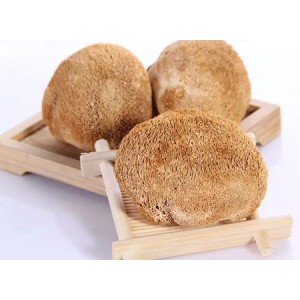Could lion's mane extract improve memory by boosting nerve growth?
Lion's mane extract powder for improving memory:
Lion's mane extract, derived from the Hericium erinaceus mushroom, has been the subject of increasing interest due to its potential cognitive benefits. Research suggests that lion's mane extract may improve memory and cognitive function by boosting nerve growth.
Nerve growth is essential for maintaining and enhancing cognitive function. Nerves, particularly in the brain, form connections with each other to transmit information, and the growth of new nerve cells (neurogenesis) and the development of nerve cell connections (synaptogenesis) are crucial for learning and memory. Lion's mane extract powder contains bioactive compounds that have been shown to stimulate nerve growth, potentially leading to improvements in cognitive function.
One study published in the International Journal of Molecular Sciences found that lion's mane extract promoted nerve growth factor (NGF) production in cultured rat astrocytes. NGF is a protein that plays a critical role in the growth, maintenance, and survival of nerve cells. By increasing NGF production, lion's mane extract may support the growth and function of nerve cells in the brain, ultimately leading to improved memory and cognitive function.
In addition to promoting NGF production, lion's mane extract has also been found to stimulate the expression of brain-derived neurotrophic factor (BDNF). BDNF is another protein that supports the survival and growth of nerve cells, particularly in areas of the brain associated with learning and memory. By enhancing BDNF expression, lion's mane extract may further contribute to the promotion of nerve growth and the enhancement of cognitive function.

Several animal studies have provided further evidence of lion's mane extract's potential to improve memory and cognitive function. In a study published in Biomedical Research, mice administered with lion's mane extract demonstrated improved recognition memory compared to control mice. Another study published in Behavioural Neurology reported that mice supplemented with lion's mane extract showed enhanced spatial memory in a maze task. While these findings are promising, further research is needed to determine how lion's mane extract exerts its cognitive benefits.
It is important to note that while the preliminary research on organic lion's mane extract and its potential cognitive benefits is promising, more human studies are needed to confirm these effects. Additionally, the optimal dosage and long-term effects of lion's mane extract on cognitive function have yet to be fully elucidated.
In conclusion, lion's mane extract shows promise as a natural supplement for improving memory and cognitive function by boosting nerve growth. Its ability to promote the production of NGF and BDNF and its positive effects observed in animal studies warrant further investigation into its potential therapeutic applications for cognitive health. Nonetheless, more research, particularly in human subjects, is necessary to fully understand the extent of its cognitive benefits and establish appropriate usage guidelines.














